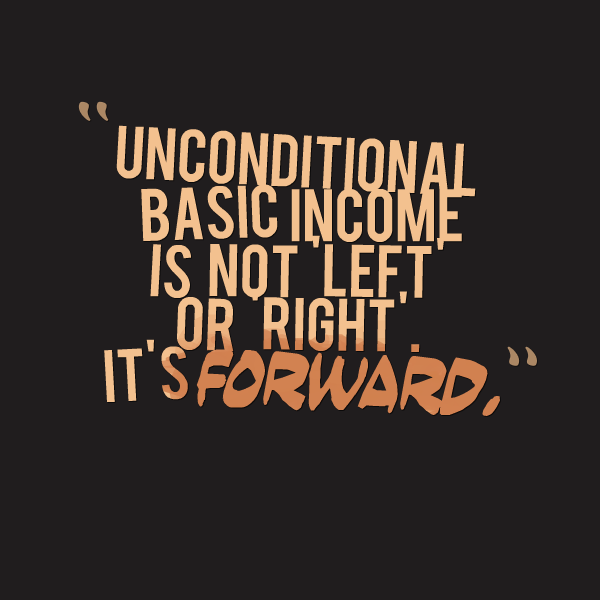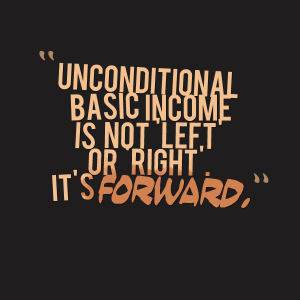I am inclined to agree with Brian Easton when he writes of the impracticality of the usual basic income ideas: What is The Problem with a Universal Minimum Income?
The essential trade-off is that a level of basic income for all that removes poverty is horrendously expensive and would have a huge impact on behaviour, for example, the willingness to earn extra income.
Thus, while the idea of a basic income is intellectually appealing, unless we can realistically show how to get there it will remain in the textbooks. It will also fall flat unless it clearly reduces poverty. Thus Gareth Moran’s Big Kahuna is unworkable when its charming calculator tells a sole parent on a benefit with two children they will be worse-off. If she earns a princely $35,000 per annum in paid work, the calculator finds she is $5637 worse off and must appeal her sense of being happy for others. To quote:
“Oh no, you’ll be worse off. But others won’t be!”
Currently the over 65 year olds do quite well because we give them a living basic income already at ensures low poverty rates after housing costs. But NZS is not the best form of a basic income and is more expensive than it needs to be.
The working paper Improving the affordability of New Zealand Superannuation shows that a basic income approach is capable of delivering meaningful saving without causing any material hardship to anyone. Most superannuitants would not be affected and those who are made worse off, are already so well-off they would hardly notice.
We can kill two birds with one stone. We can make the over 65 years old group the trailblazers for the basic income idea at the same time as saving a significant amount of money to redistribute to poor families for housing and to fix the iniquitous Working for Families.
(For the latter alone, at least an extra $500 million per annum is required see AUT Briefing Paper Series What should be done about Child Poverty?)
The working paper changes the existing New Zealand Superannuation into a basic income called the ‘New Zealand Superannuation Grant,’ The level is set at the married rate of NZ Super after tax. There is no good reason for the current different rates of NZ Super based on marital status (as considered more broadly in this CPAG paper).
In today’s terms the married rate is $14677 or $282 a week. This would be the level of the new tax-free payment. To make sure that those who have no other income are protected from an actual cut, the alignment of the rates would be achieved over time by freezing the single rate until the wage-linked married rate catches up. To compensate for the loss of the ‘living alone rate’ a supplement for high housing costs and low income would be available. Those who elect to take the NZ Superannuation Grant would be automatically placed on a new tax scale for all other income.
The paper illustrates a simple superannuitants’ tax scale of 17.5% on the first $15,000 and 39% on all income over that. Any superannuitant with gross other income up to $15,000 would be no worse-off under the new tax scale. Above $15,000, the new tax scale provides a gentle clawback while not increasing the marginal rate of tax beyond 39%. Many other people, students repaying loans, working families getting Working for Families, beneficiaries working part-time, ex-partners with child support, for example, can currently face far higher rates.
The definition of income for superannuitants would be broadened just as it has been for Working for Families.
Under the new tax system a superannuitant has lost all of the net advantage they currently enjoy from their NZ Super at $147,000 of other income. This is the cut-out point. Those on earned incomes above $147,000 may chose not to apply for the New Zealand Superannuation Grant or they may be permitted to recover any overpaid tax at the end of the year.
Costings suggest that the combination of a gradual alignment of married and single sharing rates and a two tiered tax as described above could produce worthwhile savings of around 10% or more of the net cost of NZS. This in turn could release $1 billion immediately to address the pressures felt by poor families and to start extending some basic income ideas to other groups. Keith Rankin is offering some practical suggestions for the unemployed in his latest blog.
Come on superannuitants. Show willingness to lead the way. Things are not right for too many families and something must change. You have nothing to lose but your loose change.







So….your idea (sorry it’s a bit confusing) is that they no longer receive Accommodation Supplement, Disability Allowance, or Temporary Additional Support, and neither will they be eligible for Special Needs Grants because you want to replace these with just the basic income??
Very easy to read, thank you. I would think all supplementary payments would be income tested also. This looks like the way forward.
This seems similar to the 10% surcharge idea that was in force in the late eighties and early nineties, and which was thoroughly rejected by the electorate.
In all seriousness, with an aging (voting) population, this is a non runner.
Dan
That is defeatist
The older population also have children and grandchildren. Many of the are aware of the problems and would like to help. This approach would affect a minority only and after all they paid tax at 39% for years under Labour so it is not draconian. Someone in full time work on $150,000 does not need NZ Super. Yes the surcharge was hated but this approach overcomes many of the old surcharge failings. We have to start the discussion about New Zealand Superannuation in this time of rapid population ageing other wise we will see an increasing gap in living standards between many of working age and the old.
There are good points here but Susan you have completely missed the whole ethos of Govt Superannuation. We believe that after a lifetime of working and contributing in NZ, that we can be assured of some sort of return, and safety net in our old age, because in most cases we have claimed little or nothing from the State. Those who work and pay tax while on Super are still contributing! As you say, 39%. However those you seek to tax, on high tax avoiding incomes, will still not pay tax! Friends in Auckland and Wellington are using their whole Super income to pay their rates now.
We work our whole lives, to get a pittance in our declining years, leave it alone.
Go and get rid of the iniquitous student loans! That would help our children and grandchildren.
Get some jobs in the country so when our kids graduate they dont all leave!
Stop foreigners buying house, so that our chikdren, who we most likely have given the deposit to anyway, can buy a house in an area where there are jobs. These people buying do not have residency ….its all investment and an absolute disgrace.
And if as you say, it only affects a minority, why bother? Many of these people working are,those who lost their life savings from the cowboys in the finance industry. They have no choice but to work and if we can give them something back they have paid for,
That shows a social conscience
Go back to the drawing board Susan…. This is not the place to start.
In Sri Lanka for instance, if you are a foreigner, you pay 100% tax when you buy property. Now, there’s an idea!
Sandi, I have waited a couple of days to reply to your post, perhaps just not to potentially influence contributors regarding my initial post.You are absolutely correct.
What about the towns in Canada that implemented it (until a change of government stopped it).
I like the idea of this but I would go further. I think that rather than getting all antsy about there not being enough jobs and stupid zero hour contracts, that we rethink the idea of self employment and especially the taxation of it.
I reckon if we made it a whole lot easier for people to be self employed we’d a achieve a number of things. People would naturally seek to augment the basic income but would have that as a backstop to even out the humps that self employment inevitably brings. Because people would be occupied in large numbers doing their own thing, employers would have to sharpen their pencils a bit when it came to finding employees, there being a smaller pool to draw from.
I reckon we could seriously look at a whole new way of running things and I think the universal income would be a very good start, that and simplifying the taxation system for the self employed earning less than, say, $50k
Thank you Rae for starting the debate about how we can extend the idea once we get it working for those over 65.
A lot of work needs to be done but the world of work has changed for ever and it is time we got to grips with that. One thing we could do is to stop requiring people for work fixed hours per week to qualify for a $60 a week extra tax credit for their chidlren . With the principle of basic income in mind we can make changesto move us towards to it with logical steps that dont scare the horses
To assist the debate here are some back-of-the-envelope figures I’ve worked with:
NZ’s government income is ~$75 billion.
It’s current welfare spending is $21 billion.
Another $1+ billion is spent on administration.
I calculated a basic income would cost a total of $50 billion.
That would get everyone about $210 p/w.
Which is not enough really, which is why I advocate collapsing house prices to get us closer.
Susan,
One gapping hole that SANDI touched on was when we have spent a lifetime of work and spent our health doing so, we wind up either Disabled or chronically ill in our retirement years which mean that since the medical health system which has been scaled back now since 2008 by National leaves us with the extra cost burden of paying for our health treatments (that either are now cut from the subsidised health portfolio (Dental emergencies) is just one such example) then we are facing a lot of extra costs just to stay alive now.
Best option is to give the adequate support to the lower income scale of Superannuates to keep them as healthy as possible without serious health repercussions the state would then incur later than keeping a universal blanket cover for the other well off over 65’s that have more wealth to keep them healthy.
Comments are closed.